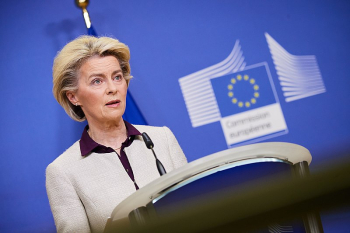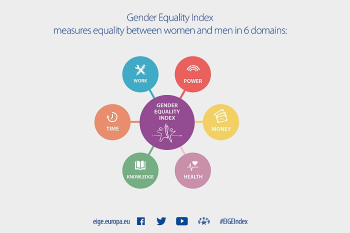
A new Eurobarometer survey, released today, shows trust in the European Union has reached its highest levels since 2007, with unprecedented support for the euro.
The findings also reveal a growing sense of optimism about the future and a strong desire for a more independent and robust EU to tackle global challenges.
Trust in the EU at a 17-year high
For the first time in 17 years, 51% of Europeans express trust in the EU, with the strongest support coming from young people aged 15-24, where trust reaches 59%. Similarly, trust in the European Commission is at 51%, matching this record-high trend.
The survey also shows that 74% of respondents feel a strong sense of EU citizenship, marking the highest level in more than two decades. Furthermore, 61% of EU citizens hold an optimistic view of the Union’s future.
In terms of public perception, 44% of Europeans have a positive image of the EU, 38% view it neutrally, and 17% have a negative impression.
This positive sentiment extends to most EU enlargement countries. A majority of citizens in Albania (81%), Montenegro (75%), Kosovo (70%), Georgia (58%), North Macedonia and Bosnia and Herzegovina (56% each), and Moldova (52%) express trust in the EU. Trust in the EU has also risen in Türkiye (42%, up by four points), Serbia (38%, up by two points), and the United Kingdom (38%, up by six points).
Europeans advocate for a stronger, independent, and sustainable EU
Nearly 70% of respondents believe the EU possesses the necessary power and tools to protect Europe’s economic interests in the global economy. A similar proportion view the EU as a bastion of stability in an increasingly volatile world.
Security and defense are identified as the top priority for EU action in the medium term (33%), followed by migration (29%), the economy (28%), climate and the environment (28%), and health (27%). In the short term, ensuring peace and stability is seen as the EU's most impactful goal (44%), along with securing essential supplies such as food, health products, and industrial materials (27%) and managing migration (27%).
When it comes to climate priorities, respondents urge the EU to focus on renewable energy development (38%), sustainable agriculture investments (31%), energy infrastructure (28%), and clean technology (28%).
Historic support for the euro and economic optimism
Support for the euro has reached an all-time high, with 74% of respondents in the EU and 81% in the eurozone backing the common currency. Additionally, 48% of Europeans now view the EU's economic situation positively, an increase from earlier surveys, while 43% see it negatively.
Confidence in economic stability is growing, with 49% of citizens expecting the European economy to remain stable over the next year. Perceptions of the economy have steadily improved since late 2019.
Enduring backing for EU’s actions on Ukraine
In response to Russia’s aggression in Ukraine, 87% of Europeans support humanitarian aid for those affected. Economic sanctions on Russia are backed by 71% of respondents, and 68% support financial aid to Ukraine. Additionally, six in ten Europeans favor granting Ukraine candidate status, while 58% approve of EU funding for military equipment for Ukraine.
The war in Ukraine remains the most pressing issue at the EU level (31%), followed by immigration (28%) and broader international concerns (22%). A significant majority (76%) agree that Russia’s invasion poses a direct threat to EU security.
Survey details
The Standard Eurobarometer 102 (Autumn 2024) survey was conducted from October 10 to November 5, 2024, across the EU’s 27 Member States, with 26,525 citizens interviewed face-to-face. The survey also included respondents from nine candidate and potential candidate countries (excluding Ukraine) and the United Kingdom.
















